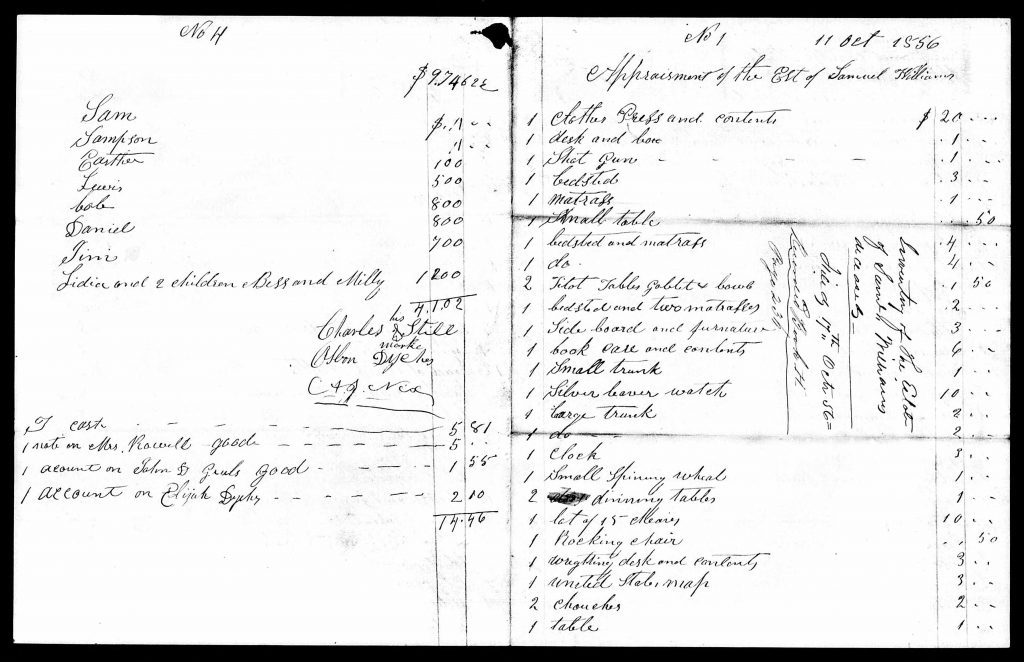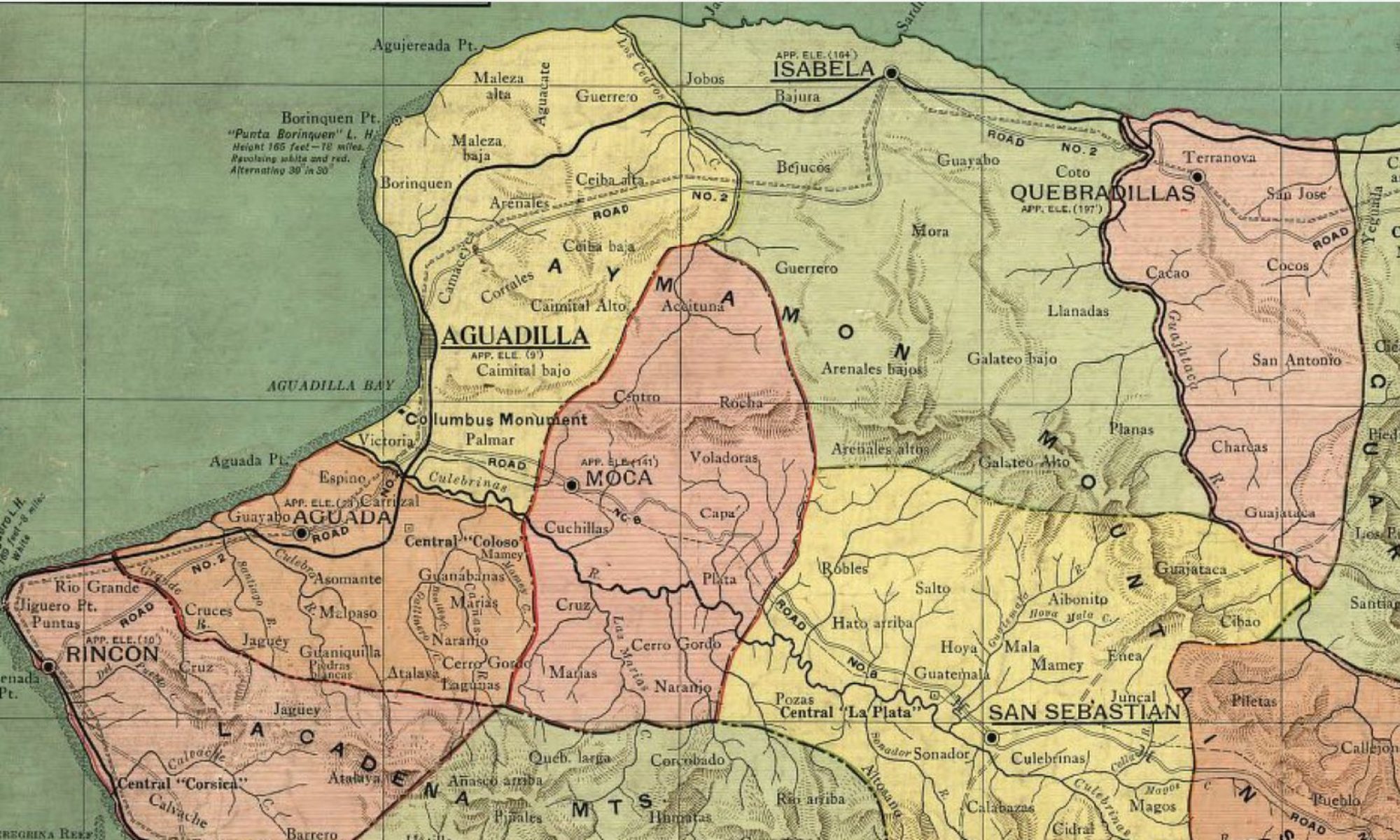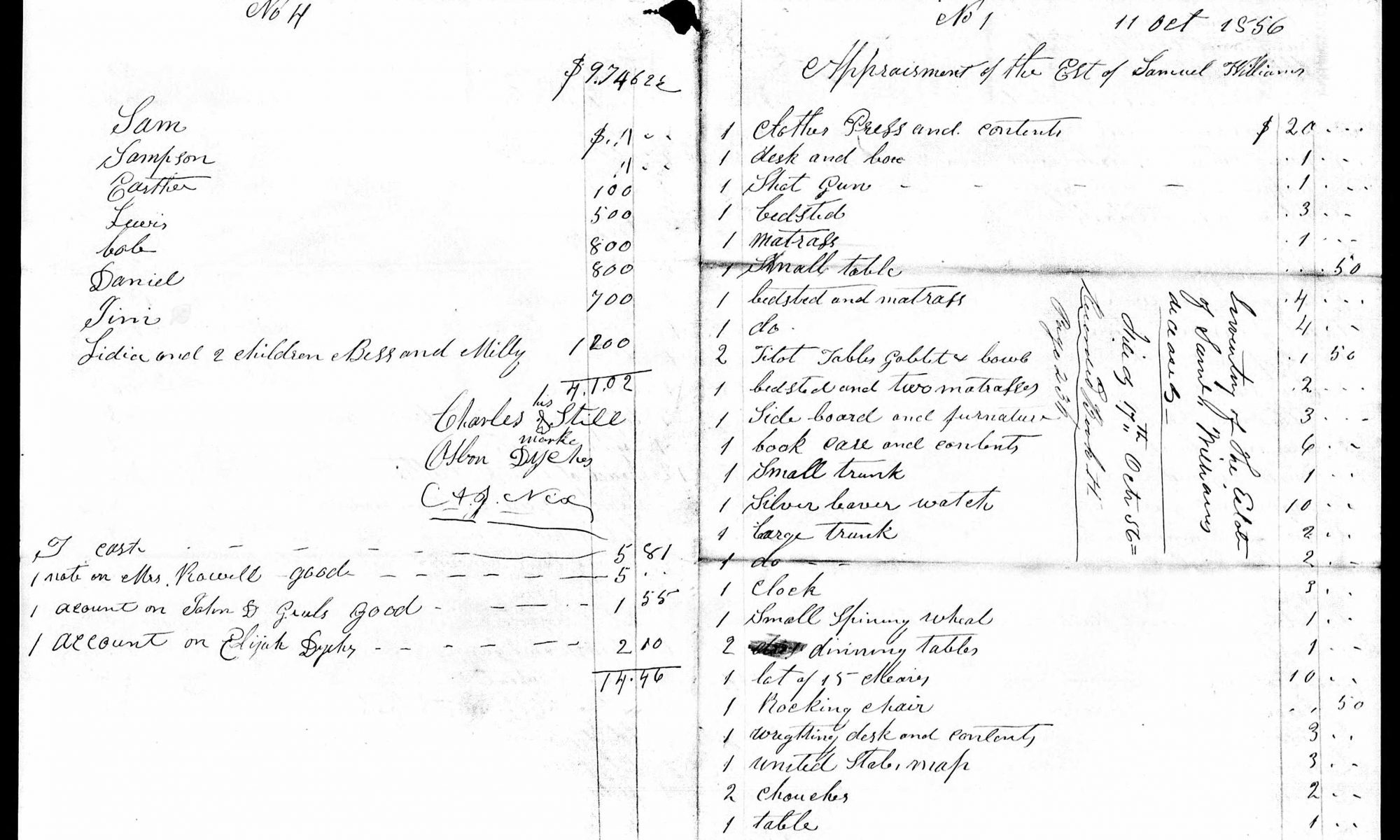At the end of October, I was searching South Carolina probate records to see whether a Williams may have enslaved some of the ancestors I am helping to search for in Barnwell County.
I transcribed this list of 8 people, ranging from old to young, in hopes this may help someone find their ancestors.
On January 8, 1858, the Williams estate is described as follows: “…estate lying in Barnwell District on the waters of Tobey Creek, bounded on the west by Tobey Creek, on the East by the estate of John Martin, North by BH Brown and South by Joseph Still and Frederick Croft containing seven hundred and ninety five acres …” 8 Jan 1858
Samuel Williams 1795-1856 SC Wills & Probate 1670-1980 Barnwell, Probate Records Case No. 131-132, 1787-1958 image no. 103 of 450
No. 4 $9.74625
Sam $ 1.
Sampson $1
Earther $100
Lewis $500
Bob $800
Daniel $800
Jim $700
Lidia & 2 children – Bess & Milly $1200
———–
$ 4102
Charles his X mark
Still Osbon Dyches C + J Nisc
followed by cash & notes due
Note: page 105: first item of goods
No. 21: set of hand irons

Discover more from Latino Genealogy & Beyond
Subscribe to get the latest posts sent to your email.


When I see mention of these histories I reflect on my own heritage. I have a mixed ethnic and genealogical heritage. Some of my ancestors were enslaved African and indigenous peoples, others were Spanish, French and English slave owners.
The end result of the mix of suffering (slaves) and the privileged (owners) is me. For me to observe the social conflicts that have arisen as a result of the slave trade I have a perspective that perhaps others share as well.
There needs to be recognition of the horrible treatment that human beings inflicted on their fellow humans. At the same time I personally feel a conflict within myself that if such horrible things didn’t occur, I might have never come into existence. It is a real existential crisis that I hope someone can address in a constructive way.
Thanks for your comments Jhon. All we can do is learn more about our ancestors, about the contexts that led to our being here. Some people try to dismiss this as the past or not relevant, which for me is not an option. The slave trade is still with us in so many ways, most notably the 13th amendment and its definition of incarceration. The existential question as to why we are here, has its answer in service. How we can be better humans, to recognize the humanity of others, to not shirk BIPOC ancestors, to address non violence, to follow an anti-racist path is some of what we can do. Think about resilience.
Ellen